With the ever-evolving landscape of skincare, it’s important for you to stay informed on the latest acne treatment strategies to achieve clear skin. In 2025, several effective methods have emerged that can help you combat breakouts and enhance your skin’s overall appearance. This guide outlines the top tips to support your journey towards a healthier complexion and prevent potential skin issues. Your skincare routine can dramatically impact not only your skin health but also your confidence, making it more important than ever to adopt the best practices.
Table of Contents
Key Takeaways: Best Acne Treatment Tips to Clear Your Skin
- Personalized treatment: Consider skin type and individual needs when choosing acne treatments for better results.
- Consistent skincare routine: Maintain a daily regimen featuring cleansing, exfoliating, and moisturizing to prevent breakouts.
- Smart product choice: Opt for non-comedogenic products that won’t clog pores and can help reduce acne formation.
- Dietary adjustments: Incorporate a balanced diet rich in antioxidants while limiting processed sugars to support skin health.
- Sun protection: Use sunscreen daily to prevent skin damage, which can worsen acne and scarring.
- Professional help: Consult a dermatologist for tailored advice and treatment options, especially for persistent cases.
- Stress management: Engage in stress-reducing activities like yoga or meditation, as stress can trigger acne flare-ups.
Understanding Acne
Your journey to clear skin begins with understanding the condition itself. Acne is not just a teenage problem; it can affect individuals of all ages due to various factors, including hormones, lifestyle, and environmental elements. Recognizing the different types of acne and their characteristics is necessary for effectively addressing your skin issues.
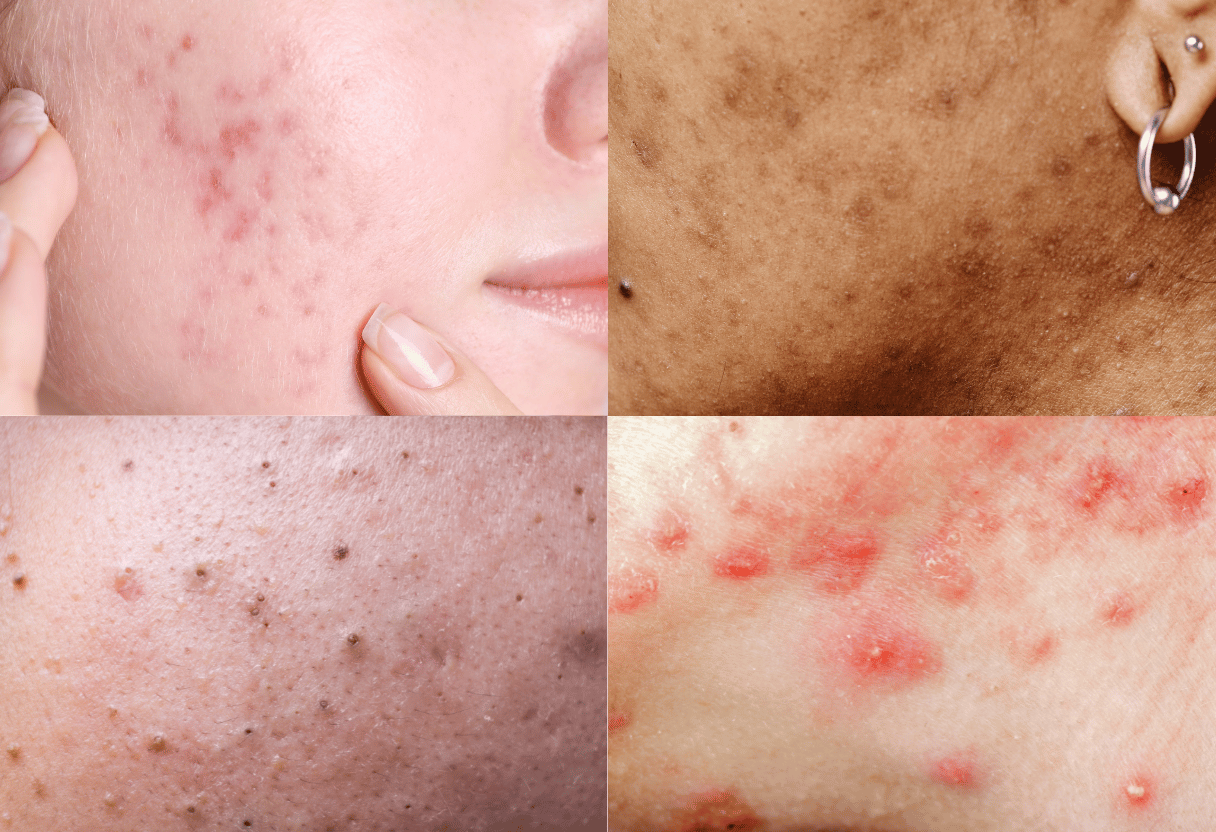
Types of Acne
To effectively treat acne, it is important to identify which type affects you. Below are common types that you might encounter:
| Type | Description |
| Blackheads | Open comedones characterized by darkened pores. |
| Whiteheads | Closed comedones that appear as small, white bumps. |
| Pustules | Red, inflamed lesions with a white center. |
| Nodules | Large, painful, solid lumps deep beneath the skin. |
| Cysts | Severe form of acne that is filled with pus and can lead to scarring. |
Knowing your specific type of acne can significantly influence your treatment strategy. Each type requires a unique approach, so understanding their differences is key to achieving clearer skin.
Common Causes
Any effective acne treatment plan must address the underlying causes of your skin condition. Acne can be triggered by a variety of factors, including hormonal fluctuations, diet, stress, and skin care products. Recognizing these causes will empower you to make better choices for your skin.
Types of causes can range from physical to emotional and even environmental. For instance, hormonal changes often lead to increased oil production in your skin, which can clog pores and lead to acne flare-ups. Additionally, poor diet, particularly high in processed sugars and dairy, may exacerbate symptoms. Stress is another significant factor; it increases cortisol levels, which can lead to inflammation and worsen existing acne. Environmental factors, such as air pollution and humidity, can also contribute by irritating the skin and increasing breakouts. Understanding these factors in detail will help you take comprehensive steps toward clearer skin.
Importance of a Skincare Routine
Some individuals underestimate the value of a consistent skincare routine when it comes to managing acne. Having a dedicated regimen helps in maintaining your skin’s health, reducing the frequency of breakouts, and promoting an even skin tone. When you take the time to care for your skin, you are not only investing in its appearance but also its overall well-being. Over time, a structured routine can aid in restoring moisture, regulating oil production, and preventing the accumulation of harmful bacteria.
Moreover, a skincare routine tailored to your skin type can help you identify the products that work best for you. By utilizing a seamless combination of cleansing, exfoliating, and moisturizing, you set the stage for achieving clear skin. This commitment ultimately fosters a positive relationship with your skin, conveying that you truly care about its health and vitality.
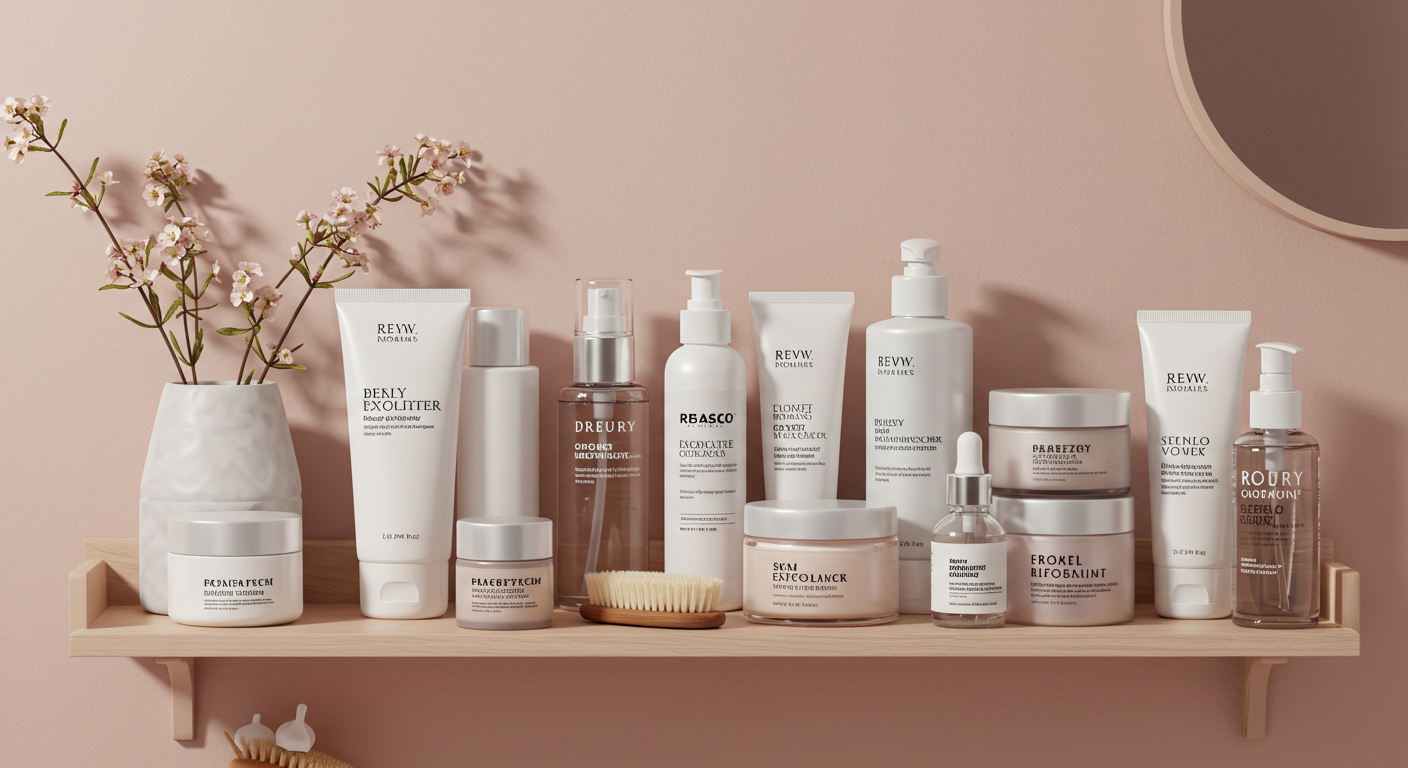
Cleansing
For optimal acne treatment, daily cleansing is crucial. This step helps remove impurities, excess oils, and dead skin cells that can clog your pores and lead to breakouts. Using a gentle cleanser that suits your skin type is vital; it allows you to cleanse effectively without stripping your skin of its natural oils. Aim to cleanse your face twice daily—once in the morning and once before bed—to maintain a clean slate for the application of other products.
It’s important to utilize lukewarm water, as hot water can irritate your skin and increase oil production. After cleansing, always remember to pat your skin dry with a clean towel rather than rubbing it, which can cause additional irritation and inflammation.
Exfoliating
Skincare professionals often emphasize the importance of exfoliating in your acne treatment routine. Exfoliation helps remove dead skin cells from the surface of your skin, promoting cell turnover and reducing the likelihood of clogged pores. Using exfoliants that contain ingredients like BHA (Salicylic Acid) or AHA (Glycolic Acid) can significantly improve your skin’s texture and clarity.
For instance, incorporating a gentle exfoliant into your routine a few times a week can enhance absorption of other treatments, making them more effective. Nonetheless, it’s vital to avoid over-exfoliating, as it can lead to irritation. Stick to 2-3 times a week and monitor how your skin responds. The key is to find a balance that keeps your skin smooth and healthy without aggravating existing acne or causing micro-tears in your skin barrier.
Topical Treatments
All of us seek effective solutions for acne, and topical treatments can be a game changer in your skincare routine. These treatments typically come in the form of gels, creams, and lotions that you apply directly to your skin. They work to unclog pores, reduce inflammation, and tackle bacteria, which are all key players in the formation of acne. Understanding the different options available to you can help you make informed choices to achieve clearer skin.
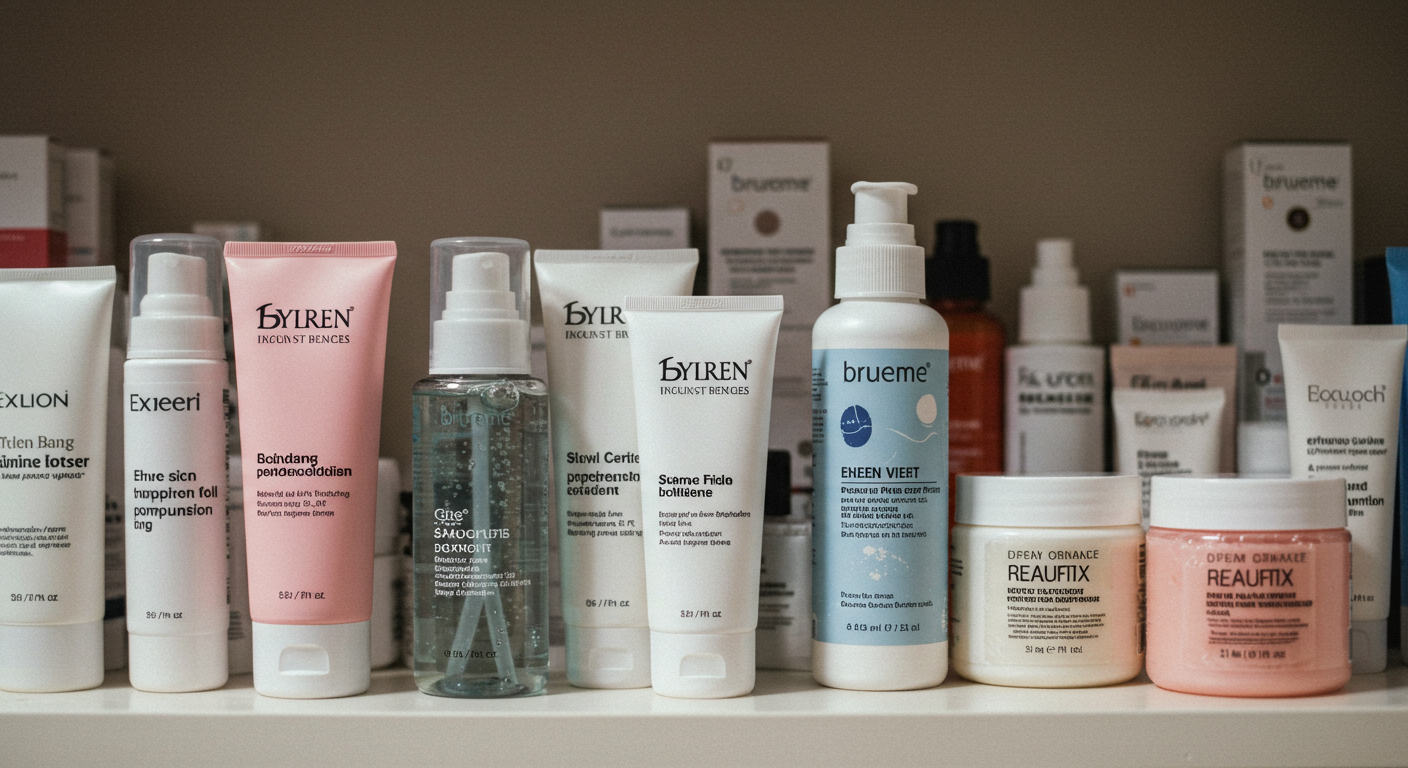
Over-the-Counter Options
Behind your journey to clearer skin, over-the-counter acne treatments can offer immediate relief for mild to moderate acne. Ingredients like benzoyl peroxide, salicylic acid, and alpha hydroxy acids are commonly utilized to combat acne. These agents work by exfoliating your skin, unclogging pores, or killing acne-causing bacteria, making them effective in reducing breakouts. You can easily access these products from your local pharmacy or online without requiring a prescription, allowing for quick integration into your skincare regimen.
Prescription Medications
Around your pursuit of clearer skin, prescription medications may be necessary for more persistent or severe acne cases. Dermatologists often recommend topical retinoids, which are derivatives of vitamin A, as they help increase cell turnover and prevent clogged pores. Other options include topical antibiotics, which reduce inflammation and bacteria, and hormonal treatments that target hormonal fluctuations contributing to acne. Always consult with a healthcare provider to determine the best course of treatment for your individual needs.
In fact, when considering prescription medications, it’s important to be aware of potential side effects such as skin irritation or increased sensitivity to sunlight. However, the positive results can be significant, often leading to clearer, healthier-looking skin. Following your dermatologist’s guidelines and starting with lower concentrations can help you find the right fit for your skin type while minimizing risks. Make sure to discuss your options thoroughly to ensure you’re making the best choice for your skin’s health.
Lifestyle Changes for Clearer Skin
Once again, addressing acne effectively often extends beyond topical treatments and requires a comprehensive approach that includes lifestyle changes. Your daily habits can significantly impact your skin health, influencing factors such as oil production, inflammation, and overall skin regeneration. By making a few adjustments to your daily routine, you can support clearer skin and bolster the effects of any acne treatment you are following.
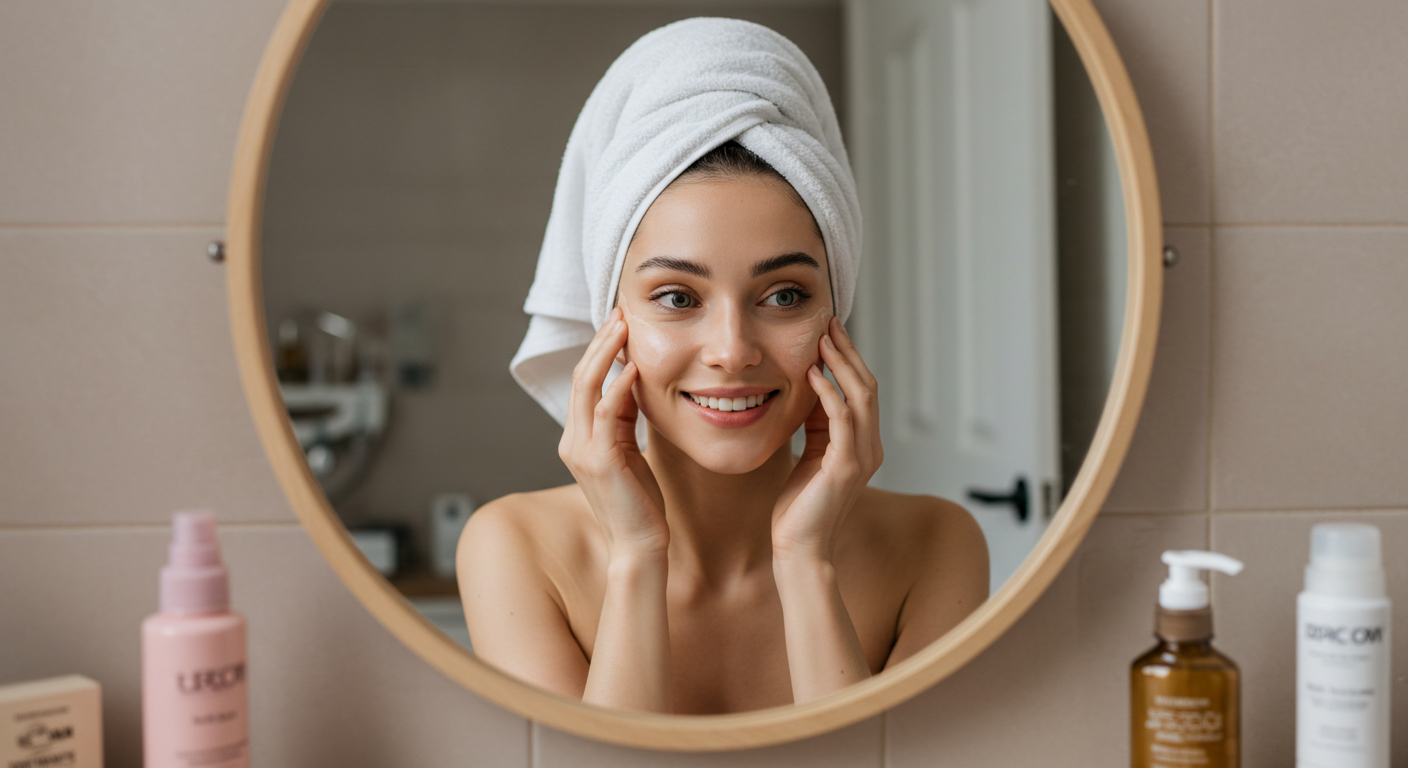
Diet and Nutrition
To achieve clearer skin, it’s vital to evaluate your diet and nutrition. Consuming a balanced diet rich in whole foods, such as fruits, vegetables, lean proteins, and whole grains, can help regulate your body’s hormonal responses that often contribute to acne. Additionally, limiting dairy and sugar intake may assist in reducing breakouts, as studies suggest these can worsen skin flare-ups for some individuals.
Stress Management
At the same time, managing stress is vital for maintaining healthy skin. High levels of stress trigger your body to release hormones like cortisol, which can lead to an increase in oil production and inflammation, exacerbating existing acne. Implementing stress-reducing techniques such as yoga, meditation, or even regular exercise can help combat these effects, promoting a more balanced hormonal environment.
The connection between stress and acne shouldn’t be underestimated. When you incorporate relaxation techniques into your routine, not only do you create a better atmosphere for skin healing, but you also pave the way for improved emotional well-being. By prioritizing your mental health and adopting practices that reduce stress, you can help minimize the chances of acne flare-ups and support a healthier complexion overall.
Professional Treatments
To take your acne treatment to the next level, consider exploring professional treatments that can offer targeted solutions to your skin concerns. These treatments often provide faster and more effective results than over-the-counter products, allowing you to achieve the clear skin you desire in a shorter amount of time. Consulting with a skincare professional or dermatologist can help you decide on the best course of action tailored specifically to your skin type and condition.
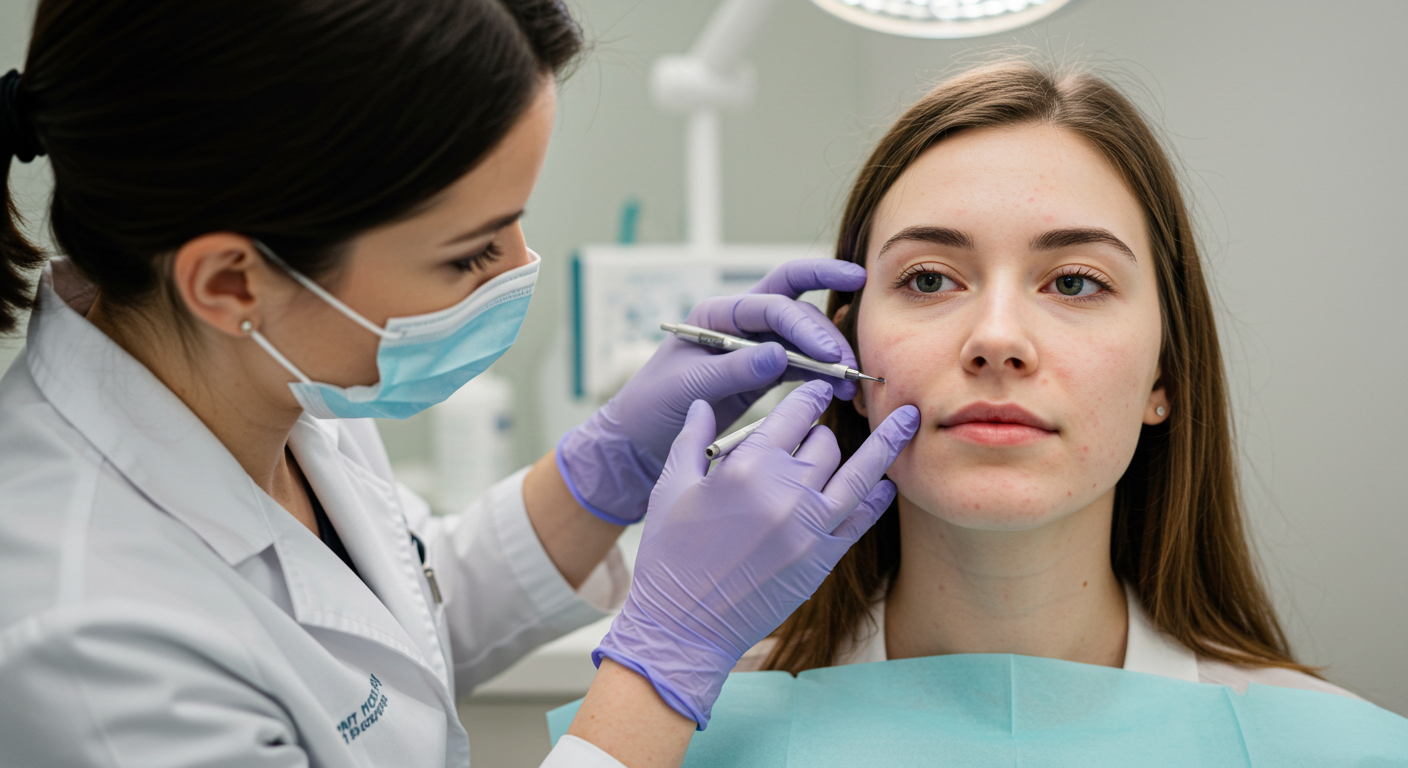
Dermatological Procedures
An array of dermatological procedures is available for those struggling with persistent acne. Options such as chemical peels, extractions, and laser therapy can significantly reduce acne outbreaks and the appearance of scars left behind. These treatments work by targeting the root causes of acne and improving your skin’s overall texture and tone. It’s important to understand that professional treatments often require multiple sessions to see the best results.
Alternative Therapies
Across the world, many individuals are turning to alternative therapies to complement their skincare routines. Treatments such as acupuncture, herbal remedies, and dietary adjustments can support acne management by addressing underlying issues like stress and inflammation. Though the scientific backing for these treatments varies, many people find them to be effective in managing their symptoms without harsh chemicals.
Treatments such as acupuncture may assist in reducing stress levels, which is known to trigger acne flare-ups for some individuals. Herbal remedies like tea tree oil or witch hazel can act as natural astringents, potentially offering gentler alternatives to traditional treatments. While exploring these options, it’s important to consult with a knowledgeable healthcare provider to ensure that these therapies are suitable for your specific condition and will not interact adversely with any existing treatments.
Myths and Facts about Acne
For anyone dealing with acne, it’s important to distinguish between myths and facts about this common skin condition. One prevalent myth is that eating chocolate and greasy foods directly causes acne. While a healthy diet does play a role in your overall skin health, studies have shown that these foods alone are not the primary culprits. On the other hand, factors like hormones, genetics, and stress are significantly linked to acne. By focusing on your diet and overall wellness, you can support your skin’s natural healing processes without getting bogged down by misleading information.
Another common misconception is that acne is only a teenage problem. In reality, adult acne is a widespread issue affecting many people in their twenties, thirties, and beyond. Understanding that acne can be a lifelong battle for some individuals will help you approach treatment more realistically. Instead of shying away from seeking help due to age-related stigmas, you can confidently explore effective treatment options tailored to your specific needs. By arming yourself with accurate knowledge about acne, you empower your journey to clearer skin.
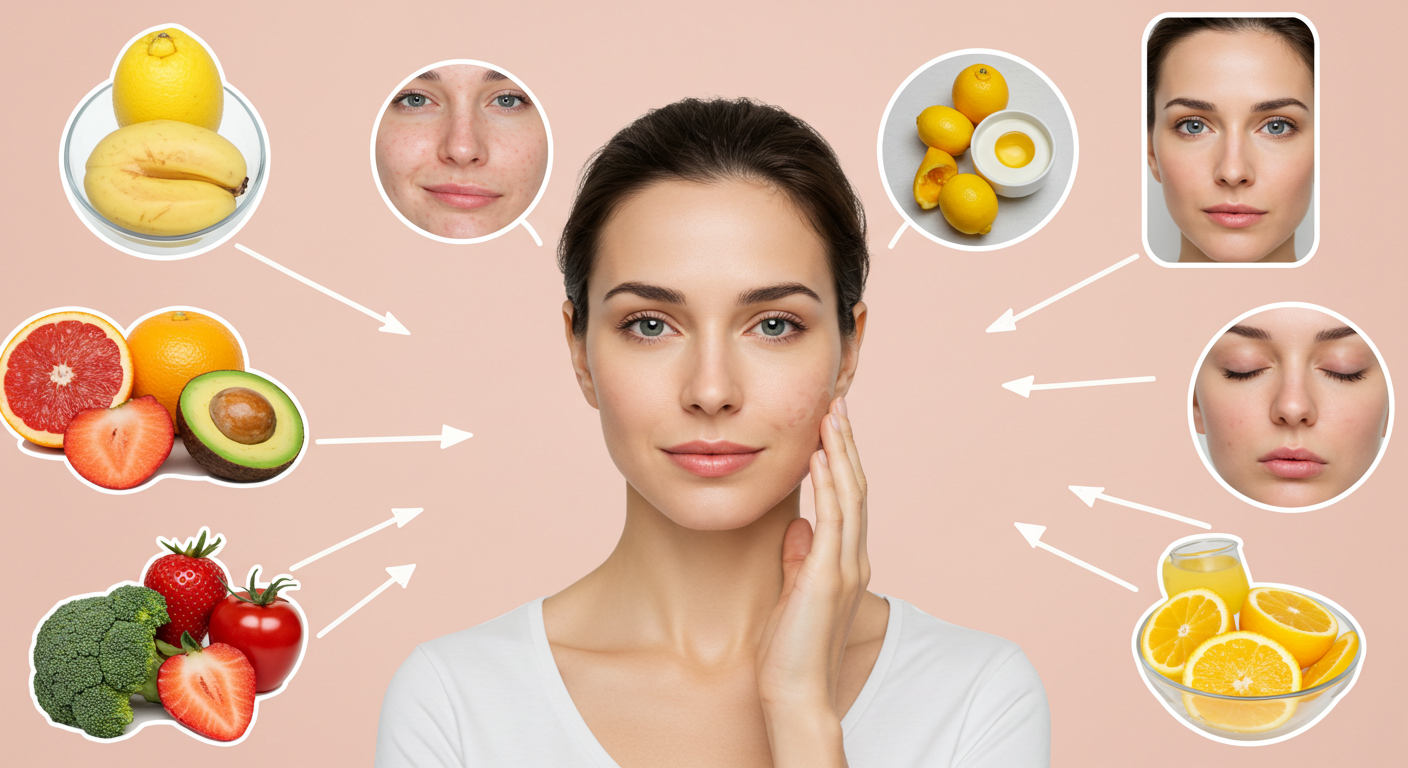
To wrap up
So, as you strive for clear skin in 2025, implementing these 7 best acne treatment tips can significantly enhance your skincare routine. By understanding your skin type, maintaining a balanced diet, and properly cleansing your skin, you can create an environment less conducive to breakouts. Additionally, incorporating expert recommendations and being consistent in your regimen will provide you with the best chance at achieving the clear complexion you desire. Don’t forget to consult with skincare professionals if you need personalized advice.
Taking control of your skin health is an empowering journey, and you can access more insights through resources like 12 Tips to Combat Acne. Stay informed about new treatments and approaches that arise in dermatology as science progresses. Following these tips will not only help you combat acne effectively but will also encourage a positive relationship with your skin.

FAQ:
Q: What are the most effective ingredients to look for in acne treatments as of 2025?
A: In 2025, the most effective ingredients for treating acne include salicylic acid, benzoyl peroxide, retinoids, and natural extracts like tea tree oil and niacinamide. These ingredients help to exfoliate the skin, reduce inflammation, and clear clogged pores. Always consult with a dermatologist to find the best product suited for your skin type.
Q: How can lifestyle changes impact my acne treatment results?
A: Lifestyle changes can significantly enhance the effectiveness of acne treatments. Incorporating a balanced diet rich in antioxidants, staying hydrated, managing stress through mindfulness practices, and ensuring adequate sleep can all contribute to clearer skin. Additionally, avoiding touching your face and keeping your hair away from your skin can further prevent breakouts.
Q: Is it necessary to use a multi-step skincare routine for acne treatment?
A: While a multi-step skincare routine can be beneficial, it is not mandatory for everyone. A basic routine that includes cleansing, targeted treatment, and moisturizing can be sufficient for many individuals. However, if more severe acne is present, adding products like toners, serums, or masks may help. Tailoring your routine to your skin’s needs is important, and consulting a skincare professional can help determine the best approach.
Q: How often should I apply acne treatments to see noticeable improvement?
A: To see noticeable improvement in your skin, it’s usually advisable to apply acne treatments consistently as directed, typically once or twice daily. However, it may take several weeks to see significant changes, depending on the severity of your acne and the products used. Patience is vital, and if you experience severe irritation, it’s best to reduce usage and consult with a dermatologist.
Q: Are there any home remedies that can complement acne treatments in 2025?
A: Yes, several home remedies can complement acne treatments effectively in 2025. These include using honey as a natural antibacterial agent, applying aloe vera for its soothing properties, and utilizing green tea extract for its anti-inflammatory effects. Always patch-test any home remedy first and consult with a healthcare professional if you have concerns regarding your skin.

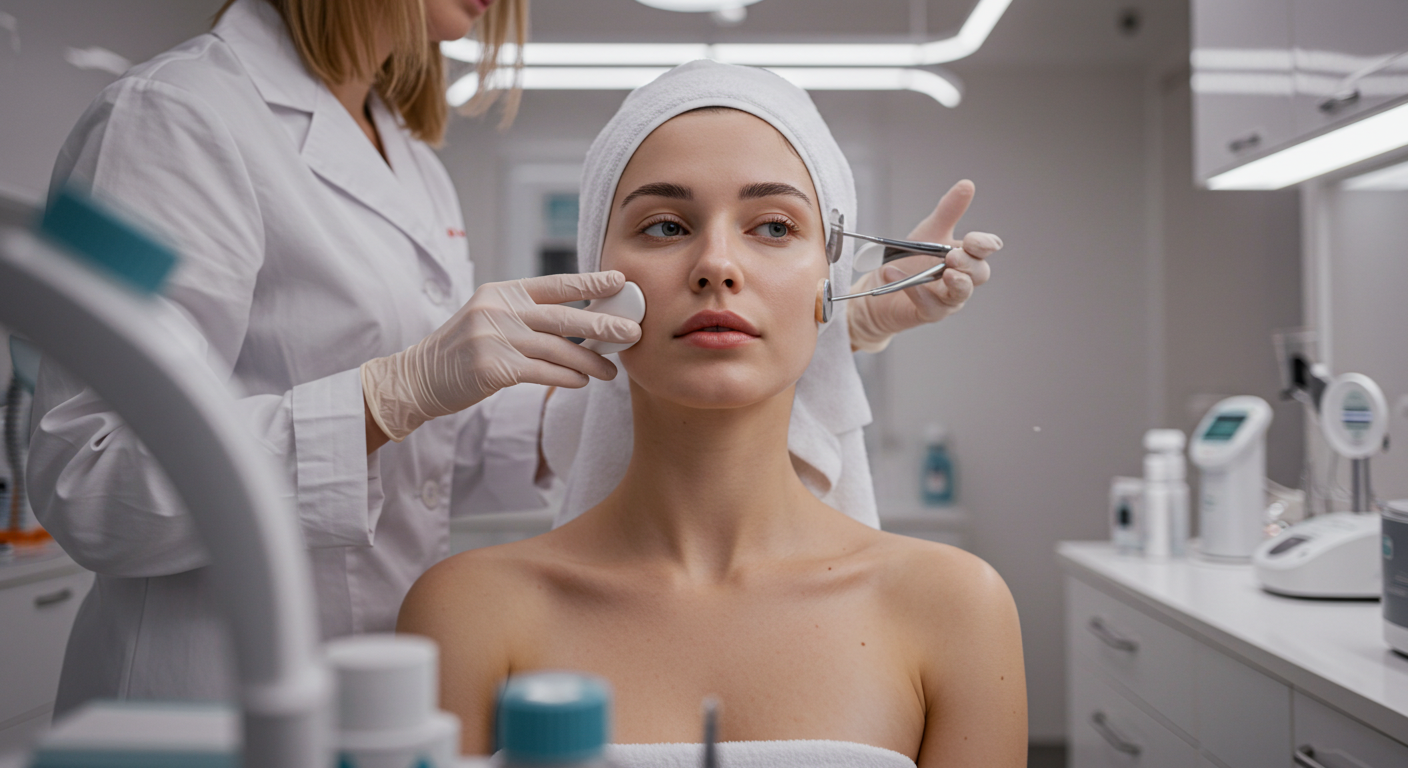



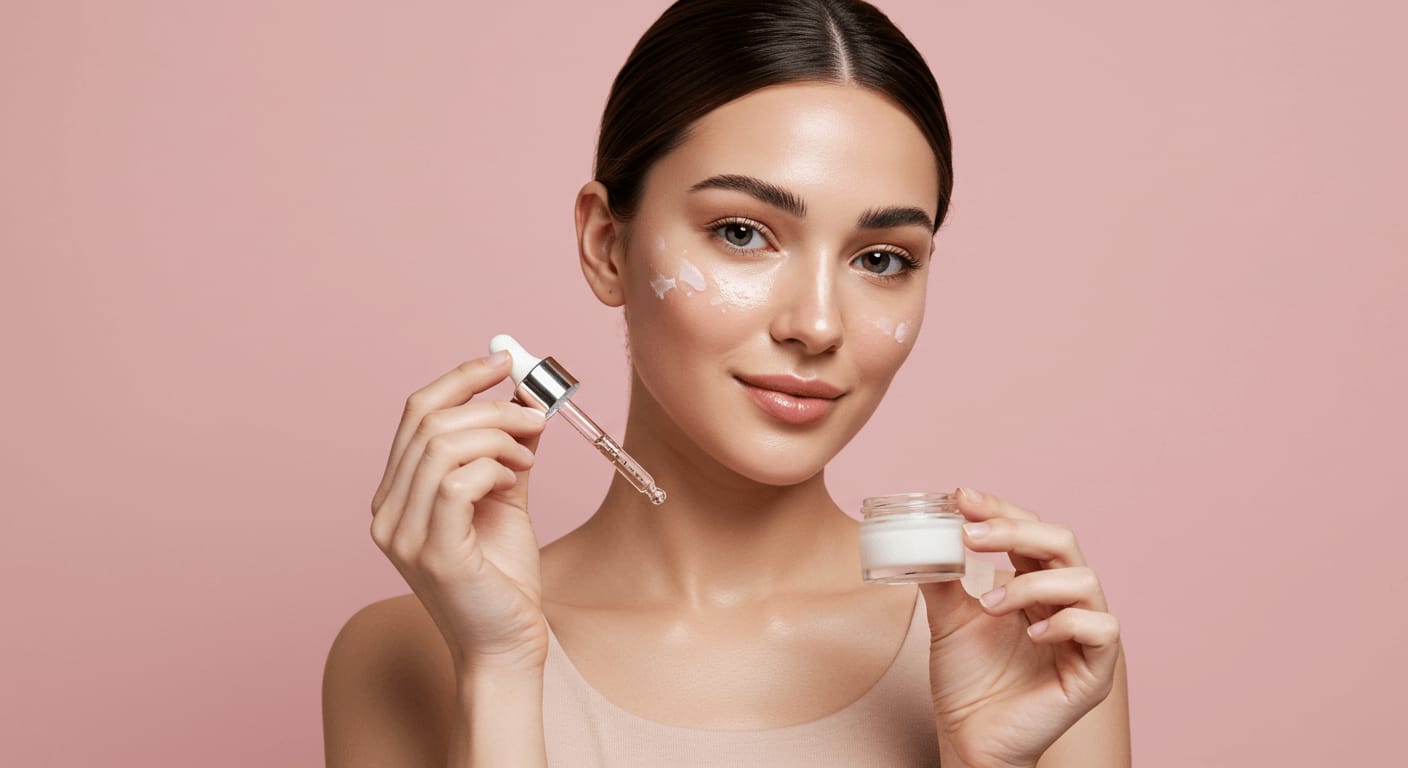

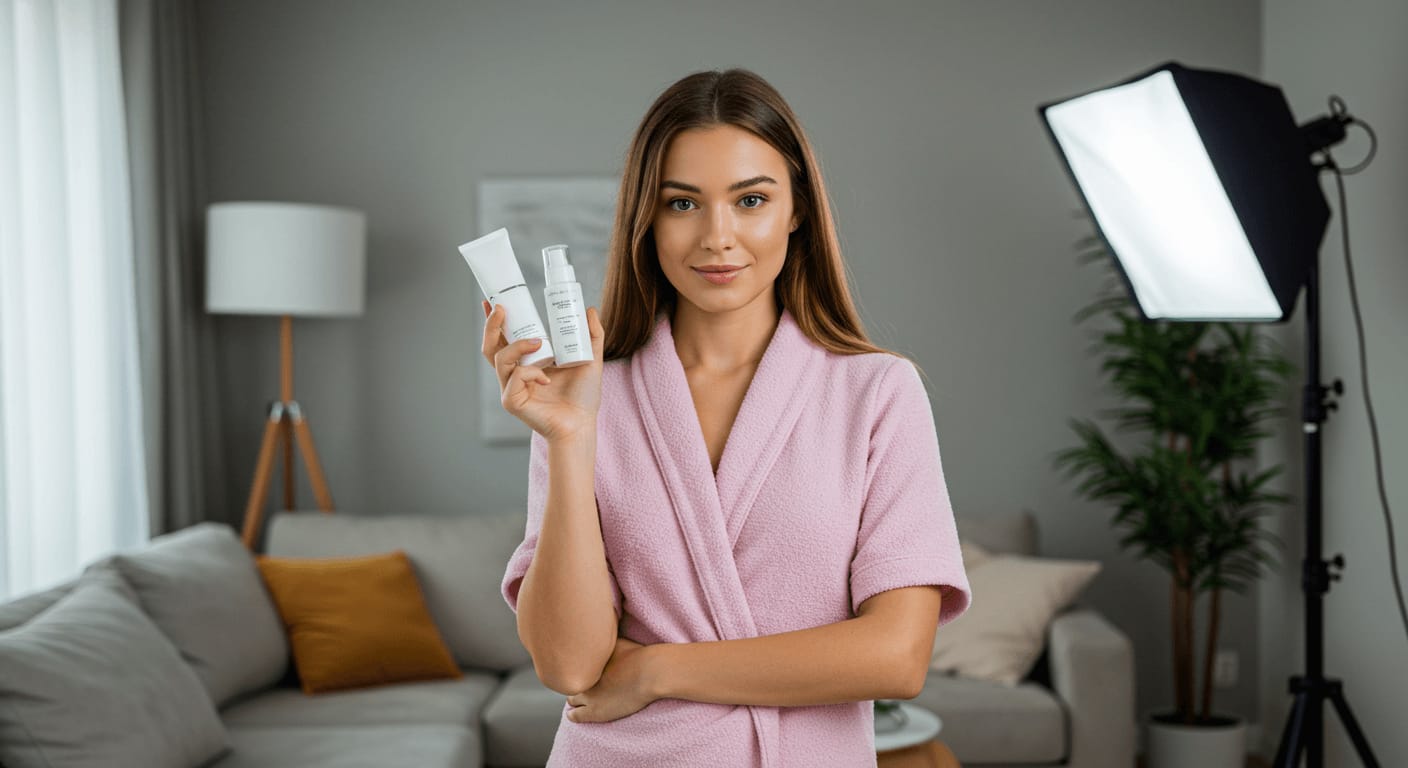

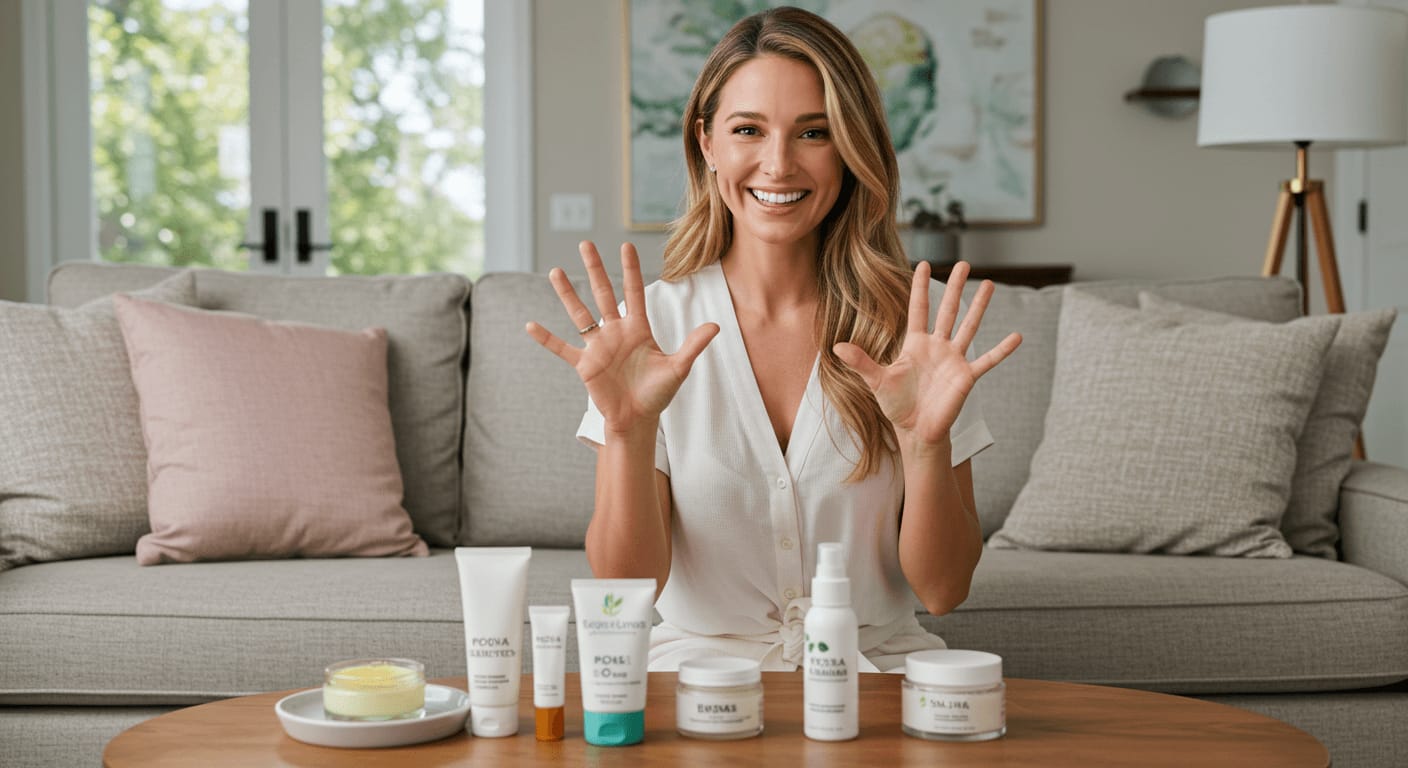

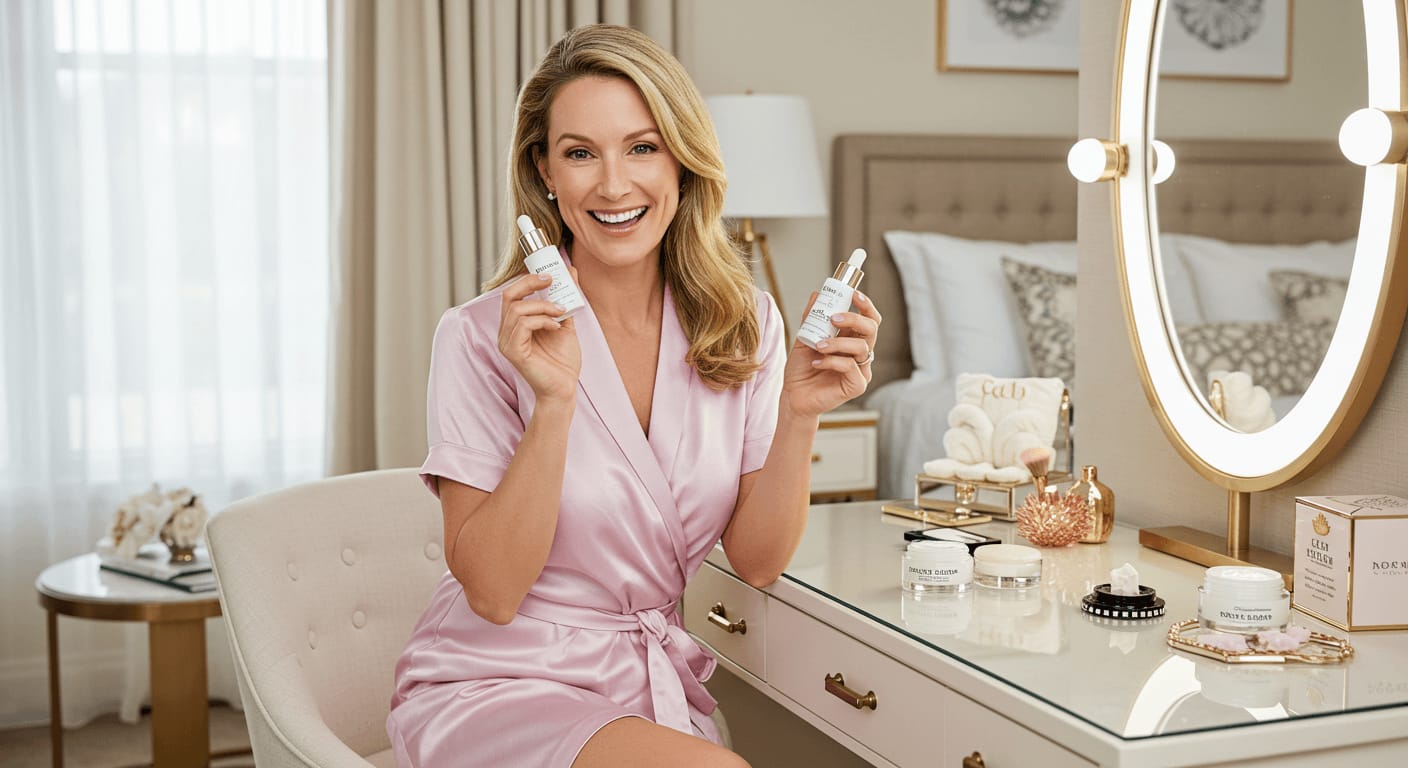



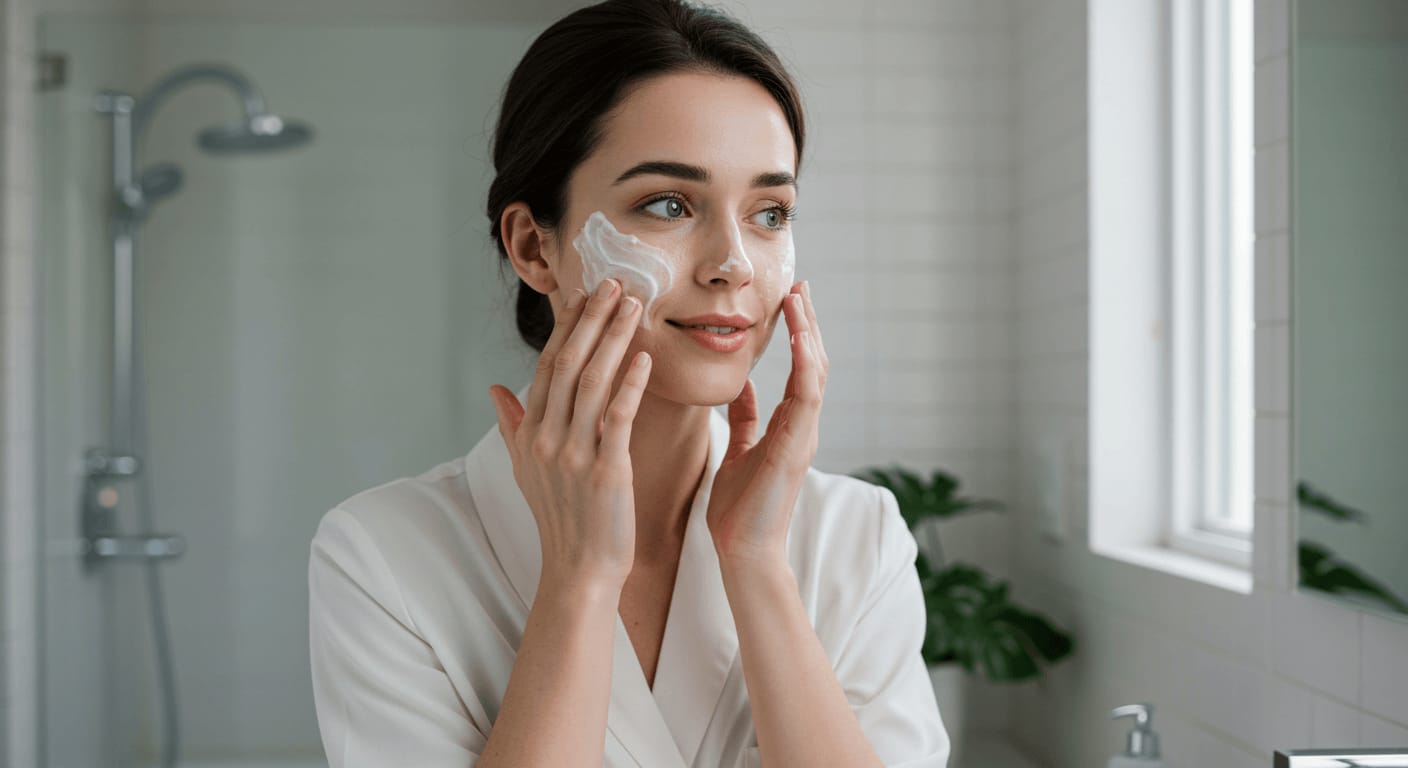








0 Comments